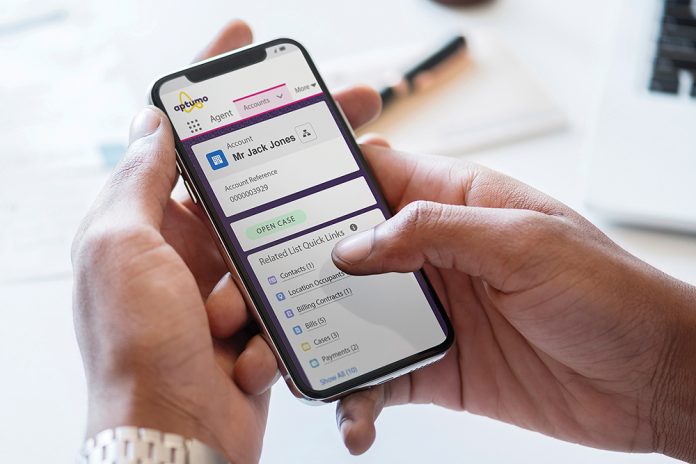Since the Consumer Council for Water (CCW) and Ofwat published a joint report in November on complaints practices within the sector in England and Wales, there has been a real focus on complaints management, and water companies have been asked to submit action plans to improve sector standards on complaints management before the end of March 2021.
Since then, 10 water companies have pledged to improve complaints response times, many looking to reduce the 10 working day sector standard response time to five, with others being even more ambitious. Since the effectiveness of complaints management teams will be vital in achieving this, perhaps one of the most efficient enablers for this will be having the right systems in place, both to handle any complaints that come through, and to prevent more complaints from occurring in the first place.
In the water sector, complaints relate most regularly to either to billing or to operations and supply. With the latter, which may be about appointment issues or quality of work for example, a real disconnect can exist between front and back office teams due to disparate systems slowing down complaints processes and causing customer frustration.
Taking the decision to implement an efficient and integrated system could not only minimise response time to complaints, but also help water companies meet other recommendations set out in the Ofwat and CCW report. So, what are the benefits of more integrated technology and how can it raise standards throughout the sector.
Harnessing the power of rich, seamless data
Robust case management functionality is vital within software and systems to minimise manual work, time consuming hand-offs and a lack of visibility between customer-facing retail teams and operational teams working across different software solutions, causing hold ups that prolong resolution for the customer.
One solution could be a one platform approach, with a single data source for integrated retail operations and operational management. Downstream data is then easily available to customer service agents, who can access all the information they need to support customers effectively when a complaint is raised. With fewer hand-offs, less manual work and more visibility, the complaints procedure could become significantly more streamlined for customers.
In addition, customer service teams will be empowered to better handle complaints, as all the information needed will be at their fingertips. By giving customer service agents the right data, they can respond quickly at the first point of contact, or even prevent a complaint all together.
A single platform developer ecosystem such as Salesforce can enable this efficient flow of data between customer service and operations. Various Salesforce-native applications with a single data source can be implemented together, this is one of the key reasons we decided to build Aptumo, our water billing software, on the Salesforce platform, to open up a world of integration-free possibilities for water companies across their entire core system infrastructure.
Powerful reporting, analytics and AI
One key recommendation in the CCW and Ofwat report is for companies to make better use of their data. Through choosing software with powerful and customizable reporting, analytic and artificial intelligence (AI) features, water companies can easily interrogate and make better sense of the plethora of information often locked deep within software systems.
This can help companies to reveal trends in the complaints journey and allow them to identify process bottlenecks, or where things are going wrong. From this, root cause analysis can follow to help remove current hold ups and increase customer satisfaction. Trend data can also reveal changes in customer behaviour and sentiment which, when combined with AI, can be used to proactively identify trends so measures can be put in place before complaints are made.
The powerful data inherent in the one-platform approach can help support companies to achieve CCW and Ofwat’s recommendation to improve understanding around the
satisfaction of complainants. Water companies who implement Aptumo, can through the wider Salesforce ecosystem, plug customer satisfaction (CSAT) native software for example directly into billing and CRM with no integration. This enables the seamless integration of CSAT technology, augmented across all channels.
Ensuring a broad view on vulnerability
Embedding a range of external data sources into software with powerful reporting capabilities alongside the use of a broad range of vulnerability indicators, can help water companies identify trends and changes across a broad range of vulnerabilities. Complaints handling may need to be tailored or adjusted to help best support different vulnerable groups, and by using rich system reporting and insight together with vulnerability flags, water companies can better understand the experiences for different groups and look to tailor processes and service to serve different attributes of vulnerability.
Complaints process efficiency
Water companies may question whether an enterprise resource planning (ERP) approach can also achieve better complaints management processes. The answer is yes, it can, but the downside is that it is more costly and lacks the inherent agility and flexibility of a single platform ecosystem. ERP is characterized by long, onerous implementation and integration programmes, coupled with the complexity of making on-going change as customer expectations and market regulations evolve.
The new era of single platform ecosystems offers an alternative to these painful legacy procedures and empowers water companies to make their own changes quickly and easily, removing the heavy reliance on software provider led change and helping them stay ahead of customer and market needs.
Ultimately, for water companies to improve complaint handling, learn from complaints and drive service improvement, they need to focus on capturing as much information as possible within a single system. Better data leads to better insight, which all helps water companies to review current operating procedures and make adjustments to systems, team knowledge, skills and empowerment to drive a new standard of complaints management.
Investing in the right technology to optimise performance will not only drive consistency and togetherness between customer service staff and field operations, but also make it much simpler for water companies to perform strongly against CCW and Ofwat’s recommendations.
For more information, visit
www.echo-ms.com or www.aptumo.com.



